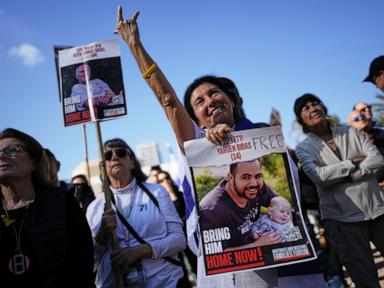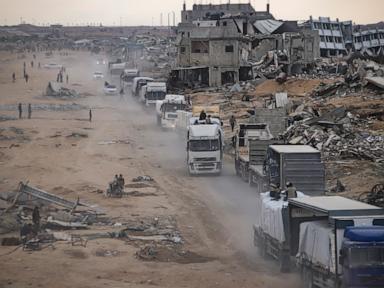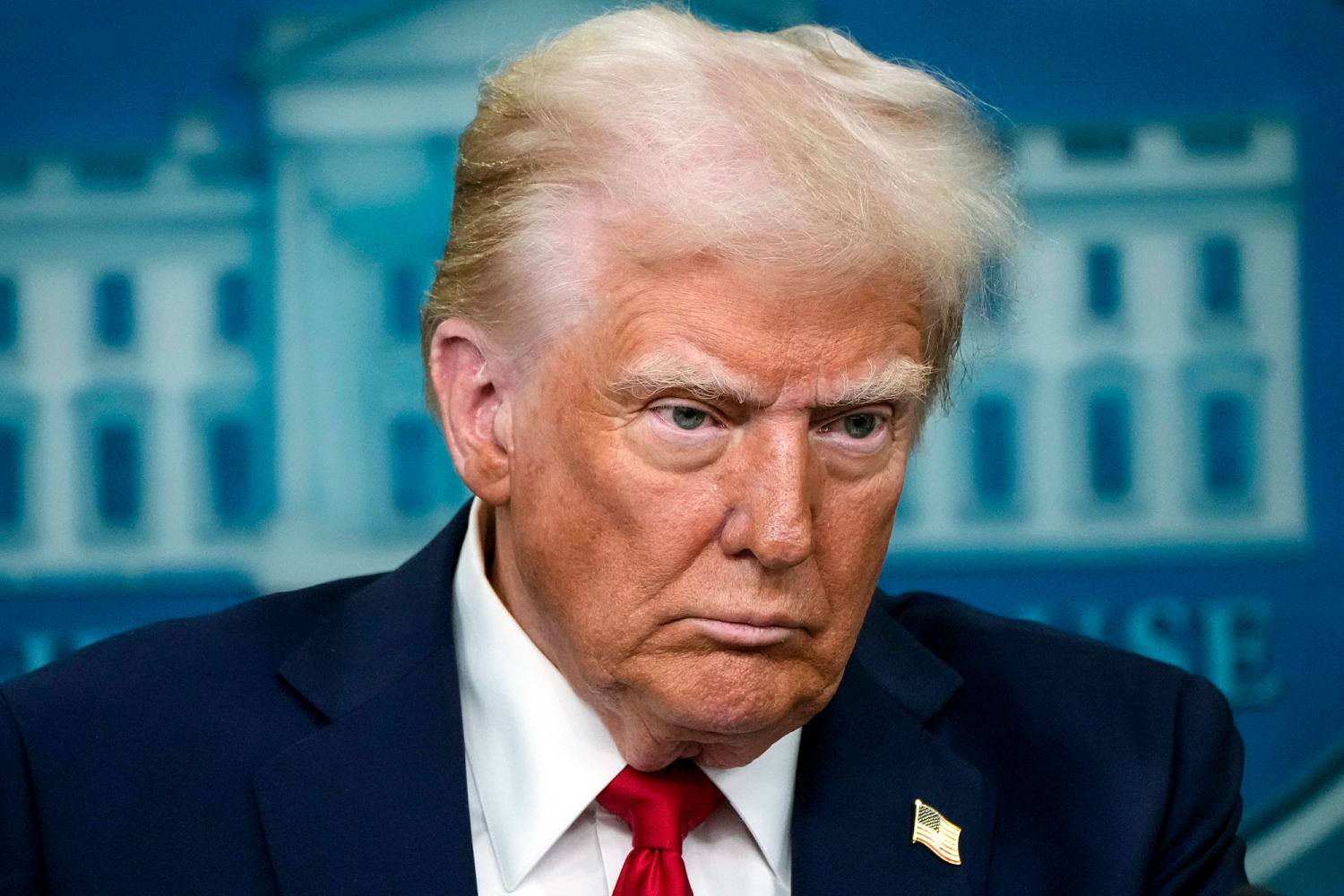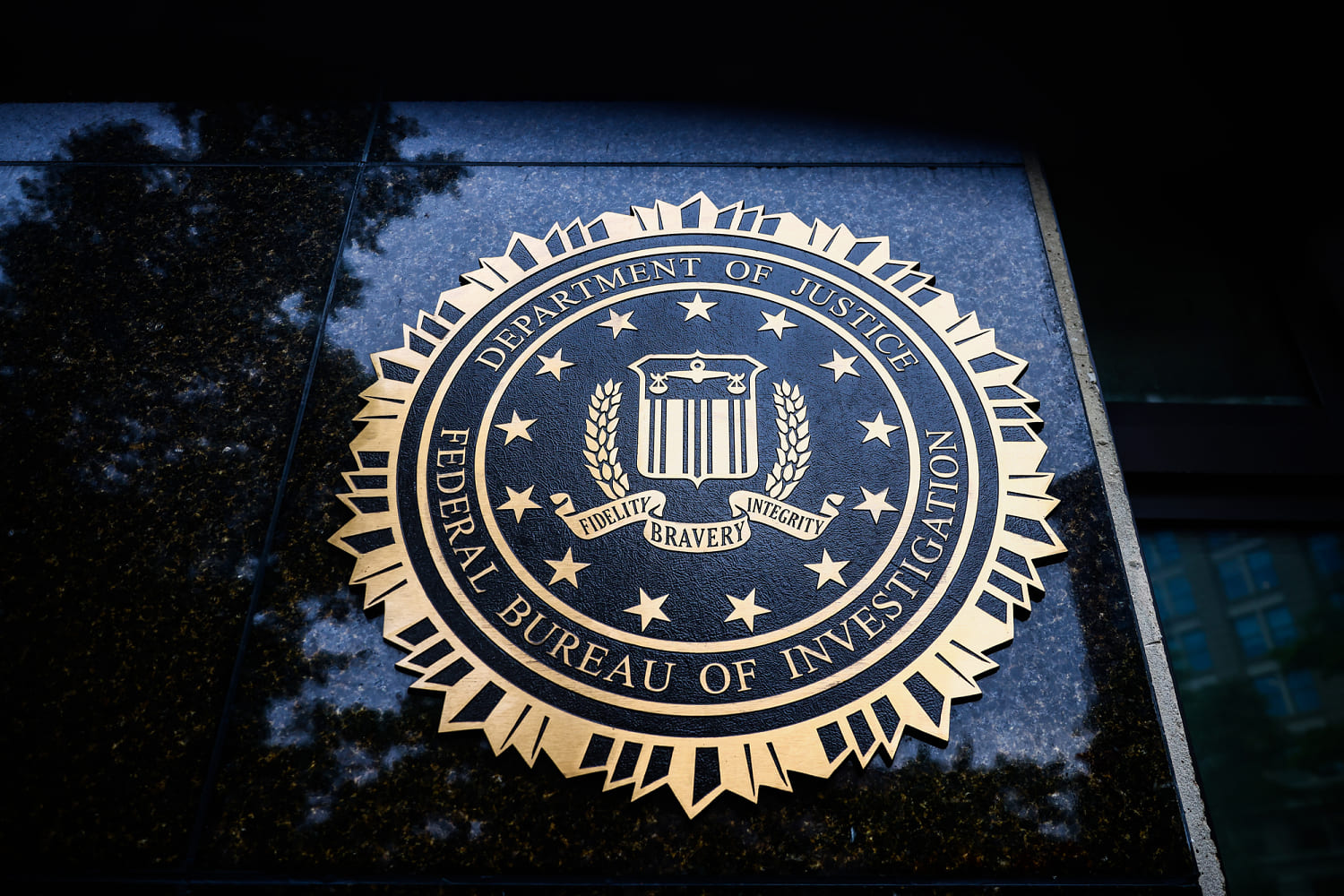A Trumpian Middle East goal: 5 Arab-Israeli peace agreements

When President Trump welcomes Israeli Prime Minister Benjamin Netanyahu to the White House on Tuesday, their conversation will focus on a Middle East where Israel’s stunning military prowess — supported by its American patron — has tilted the balance of power more heavily in favor of the U.S. and its allies than at any point in decades. The challenge for Trump is how to take advantage of this moment.
It is difficult to exaggerate the impact of the blows delivered by Israel in recent months to our common adversary, the Islamic Republic of Iran and its so-called “axis of resistance.”
Lebanese Hezbollah, the jewel in the crown of Iran’s regional proxies, is in tatters, its leadership decapitated.
Hamas, which launched the war against Israel 16 months ago, has been battered beyond recognition. It survives as a shadow of its former self solely because Israeli domestic politics prevent the emergence of a political alternative.
Syria, once the key link connecting Tehran to Lebanon, has ended the horror of the Assad family tyranny after a weakened Iran and a distracted Russia stopped propping it up. The new regime in Damascus, whatever its other faults, considers the ayatollahs to be bitter enemies.
And Iran itself made the fateful error of launching direct assaults against Israel. This reckless act legitimized Arab participation in a U.S.-led regional missile defense that helped protect Israel. It also prompted Israel’s own reprisal attacks that exposed vast weaknesses in Iranian defenses.
In sum, this is a rare moment in the Middle East. Opportunity outweighs risk, and shrewdly applied American power and influence could produce breakthroughs once thought unimaginable.
Trump already built upon this hopeful moment by pushing a long-sought Gaza ceasefire deal over the finish line with his “hell to pay” threat. Now he has the potential to build a new regional order anchored in that rarest of Middle East commodities — peace.
Over the next four years, the potential is real for Trump to achieve, with our Israeli partners, peace agreements on five fronts: with Syria, Lebanon, Saudi Arabia, broader Arab and Muslim states and the Palestinians. As breathtaking as that sounds, it is not a pie-in-the-sky dream.
With Syria and Lebanon, the first task is to strengthen the nationalist foundations of their new governments so that outside powers, such as Iran or Turkey, are not able to hold power behind the scenes.
In Beirut, that means cautioning the new leadership of President Joseph Aoun and Prime Minister Nawaf Salam against so much “national unity” that Hezbollah is allowed to recoup some of its losses by controlling certain key ministries and thereby wriggle its way back into respectability.
And in Syria, that means offering the new Sunni-led leadership incentives to complete the eviction of Russian forces from Moscow’s Mediterranean military bases and to welcome Kurds, Druze, Christians and Alawites as full partners in a free, unified but decentralized Syria.
While steep, the path to peace between Israel and both post-Assad Syria and post-Hezbollah Lebanon is not insurmountable. Washington should encourage incremental steps — including a border demarcation and monitoring agreement between Israel and Lebanon, and an updating of the half-century-old Golan disengagement agreement between Israel and Syria — before pursuing non-aggression accords and, ultimately, the brass ring of full-fledged peace treaties. With creativity and commitment, this long-term goal is achievable.
All of that would be made easier by progress with Saudi Arabia, where a three-way set of defense and normalization agreements with the U.S. and Israel, negotiated by the Biden administration, is waiting to be signed. That event would be tectonic, opening the floodgates for a broader set of Arab and Muslim states — from Riyadh’s Gulf Cooperation Council partners to more distant countries like Indonesia and Mauritania — to reach their own accords with Israel, which Riyadh wants to see as validation of its decision to reconcile with the Jewish State.
The trigger for all this has two parts. The first is a sustainable calm in Gaza, based on the ceasefire and hostage release agreement now in its first phase. Second is an Israeli commitment to a political process with the Palestinians that is both time-bound (a Saudi concern) and conditions-based (an Israeli necessity). Squaring this circle is complicated but doable.
A particularly tricky part will be to convince Netanyahu to invest in a political process that cannot be realized without allotting a substantive role to the much-maligned Palestinian Authority. This is the governing administration that — with all its many faults — offers the sole practical alternative to continued Hamas control of Gaza.
Left to a choice between empowering a yet-to-be-reformed PA or returning to war with Hamas, Netanyahu would likely choose the latter. But if Trump adds to the equation the prospect of peace with all Israel’s other neighbors, including the Saudis, the balance could shift. His energy policy of “drill, baby, drill” is, at least in part, a message to Riyadh to do its part — and not overplay its hand.
To be sure, this potential Middle East rose garden is still laced with minefields. Hamas could violate the ceasefire, restarting the war. Lebanese politicians could botch the chance to rebuild their state, paving the way for Hezbollah’s resurgence. Syria’s new leadership could succumb to its jihadist origins, leading to a loss of international support and renewed civil war.
Saudi Arabia could demand more on the Palestinian front than any Israeli leader could accept in the post-Oct. 7 world, scuttling that transformative deal. Israel’s far-right, fearing the loss of its messianic dream of a Greater Israel, could ignite a firestorm of conflict in the West Bank.
And, worst of all, Iran could compensate for its conventional military vulnerabilities by pursuing a nuclear breakout that upends prospects for peace and instead triggers a regional nuclear arms race.
Preventing all these bad outcomes will require skill, persistence, creativity and a hefty dose of brinkmanship. But, in the grand scheme of things, this is a much better set of problems than what the region faced six months ago, before Israeli power began to reshape what is possible. Translating possibility into reality begins with the Trump-Netanyahu conversation.
Robert Satloff is Segal Executive Director of the Washington Institute.
-

Middle East latest: 3 Israeli hostages and dozens of Palestinian prisoners set to be freed
Three high-profile Israeli hostages are set to be released by Hamas on Saturday, while Palestinian authorities say Israel has agreed to release dozens of prisoners, in the fourth round of exchanges ...ABC News - 1d -

Middle East crisis live: Hamas names three Israeli hostages to be released on Saturday
Palestinian militant group says Ofer Calderon, Keith Siegel and Yarden Bibas will be freed as part of ceasefire deal. Yarden Bibas, one of the hostages announced to be released by Hamas on ...The Guardian - 2d -

Middle East crisis live: Israel’s Unrwa ban is ‘jeopardising peace’, warns agency chief
Philippe Lazzarini told UN security council measure as ‘harming the lives and future of Palestinians’ . In the UK, the chair of the House of Commons international development committee has issued a ...The Guardian - 5d -

Middle East latest: Hamas releases 4 Israeli soldiers in exchange for 200 Palestinian prisoners
Hamas militants have released four female Israeli soldiers they held captive for 15 months in a planned exchange for 200 Palestinian prisoners or detainees in IsraelABC News - Jan. 25 -

Can Trump make a deal for Middle East peace? | Jo-Ann Mort
It’s Trump’s proclivity for deal-making and no mess I’m holding on to for progress toward a Palestinian state. The only thing we know for certain regarding a Trump Middle East doctrine is that the ...The Guardian - Jan. 23 -

Middle East latest: Israeli forces kill 2 Palestinian militants who carried out West Bank bus attack
Israeli forces have killed two Palestinian militants who carried out a deadly attack on a bus in the West Bank earlier this monthABC News - Jan. 23 -

Middle East crisis live: US pick for UN affirms rightwing view on West Bank; UN chief urges Israeli forces to exercise ‘maximum restraint’
Trump ally Elise Stefanik says she supports Israeli claims of biblical rights to West Bank; António Guterres cautions Israel’s security forces over major West Bank operation. US President Donald ...The Guardian - Jan. 21 -

Middle East crisis live: Israeli forces ‘fired on World Food Programme convoy in Gaza’
Statement from UN agency ‘strongly condemns horrifying incident’ on Sunday which it says risked lives of staff. ‘This is basically a civil war’: West Bank in fear after shooting of journalist ...The Guardian - Jan. 6 -
How increased Israeli military activity is changing the Middle East
The Biden administration notified Congress of a proposed $8 billion arms sale to Israel as the U.S. government maintains its strong support for its ally in the Middle East. While the Israeli ...CBS News - Jan. 4
More from The Hill
-

‘Forest management’ misdirection worsens community wildfire threats
Wildfire experts and politicians must focus on saving lives and neighborhoods from future fires, and rebuild in a fire-safe way, rather than prioritizing forest management, which has proven ...The Hill - 36m -

Watch: Fans boo US national anthem at NHL game in Canada amid trade war
The booing came shortly after Trump signed an order imposing stiff tariffs on imports from Canada, Mexico, and China.The Hill - 41m -

Live updates: Lawmakers talk Mexico, Canada, China tariffs; Vance stands by Trump's DEI comments
President Trump imposed sweeping tariffs on Canada, Mexico and China this week -- defending his decision on Sunday and acknowledging there may be “some pain” caused by the economic fallout. Trump ...The Hill - 1h -

With chaos reigning supreme, Trump’s honeymoon is already over
Donald Trump's chaotic transition to the White House has already led to a series of mistakes, including freezing federal spending and blaming a plane crash on DEI policies, further dividing the ...The Hill - 1h -

Confusion over federal funding freeze prompts public health concerns
Public health experts worry the confusion stirred by a Trump administration funding freeze memo will not end quickly, harming public health services. “It’s really hard to tell what’s actually ...The Hill - 1h
More in Politics
-

Education Dept. workers put on leave after taking diversity training during Trump's 1st term, union says
Dozens of employees who attended a diversity training course encouraged by former Education Secretary Betsy DeVos during President Donald Trump’s first term have been placed on paid leave, a union ...NBC News - 14m -

Agents 'have started to pack up their desks' as fear of FBI mass firings swirls
The acting FBI director and an FBI agents group defended bureau staffers and continued to push back on the Trump administration's recent firings of senior FBI officials.NBC News - 15m -

‘Forest management’ misdirection worsens community wildfire threats
Wildfire experts and politicians must focus on saving lives and neighborhoods from future fires, and rebuild in a fire-safe way, rather than prioritizing forest management, which has proven ...The Hill - 36m -

Watch: Fans boo US national anthem at NHL game in Canada amid trade war
The booing came shortly after Trump signed an order imposing stiff tariffs on imports from Canada, Mexico, and China.The Hill - 41m -

Live updates: Lawmakers talk Mexico, Canada, China tariffs; Vance stands by Trump's DEI comments
President Trump imposed sweeping tariffs on Canada, Mexico and China this week -- defending his decision on Sunday and acknowledging there may be “some pain” caused by the economic fallout. Trump ...The Hill - 1h